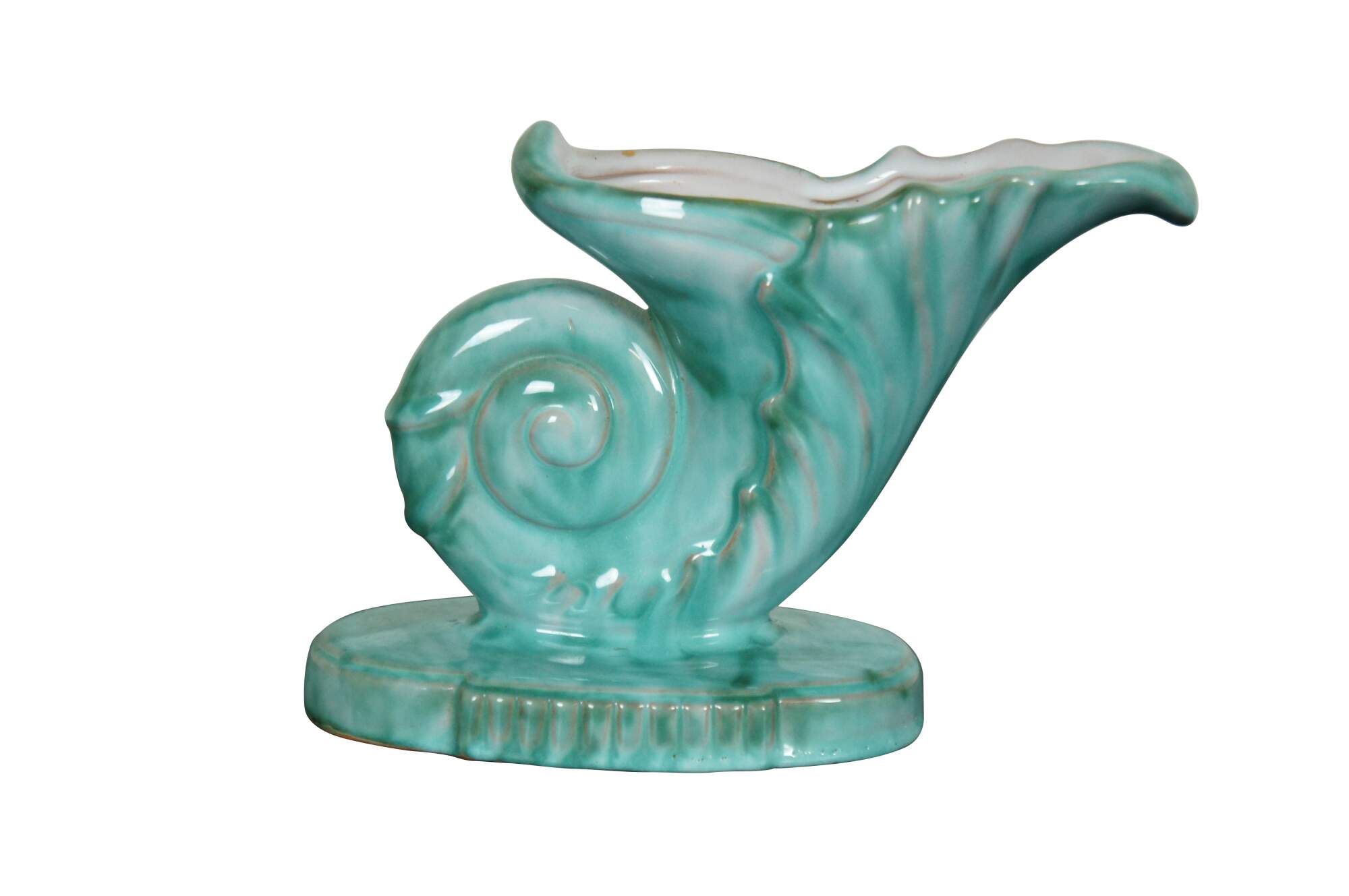
Shipping:
Free Shipping Included
Delivery:
Estimated 2-15 Business Days
Payments:
Credit Card, Check, Cash, PayPal, Apple Pay, Venmo
Returns:
30 Days 100% Money Back Guarantee, Buyer Pays Return Shipping
Description
Circa mid 20th century Stangl pottery vase number 2056, in the shape of a cornucopia wrapped in a leaf with a scrolled tail like a nautilus shell, mounted on an oval art deco base. finished in a glossy turquoise white and brown glaze.
"Stangl Pottery was originally founded by Samuel Hill in 1814 in Flemington, New Jersey, and known as Samuel Hill Pottery. Hill was a utilitarian potter, producing drain pipes and storage crocks and jars from Flemington's red earthenware clay. Abraham Fulper later became Hill's partner and Fulper bought the company in 1860, naming it Fulper Pottery. He continued in the utilitarian pottery business, but produced primarily stoneware, rather than earthenware. By 1900, the company, now Fulper Pottery Co., was under the direction of William H. Fulper II, grandson of Abram Fulper. William H. Fulper II was responsible for the development and introduction of Fulper Pottery Co.'s now renowned Vasekraft art pottery in 1909. In 1910, he hired ceramic engineer Martin Stangl to develop new Fulper Pottery shapes and glazes. By 1924, Martin Stangl was vice president of the company, and was responsible for the introduction of America's first open stock solid-color dinnerware. Upon Fulper's death in 1928, Martin Stangl became president of the company and only the Stangl Pottery line was produced after 1935. From 1929 and onward, the pottery had the marking Stangl or Stangl USA. Also in 1928, the company moved to Trenton, New Jersey. In 1935, production was ceased at the small remaining Flemington location, and that building was utilized solely as a retail showroom for the company's ceramic products, becoming one of the Nation's first "factory outlets". By the 1940s, hand-painted dinnerware had become popular, augmented in 1942 with the introduction of Stangl's best-known product, hand-carved, hand-painted dinnerware. The company's name was changed to Stangl Pottery in 1955, but the company's dinnerware had the Stangl mark from 1930. When Stangl died in 1972, the company's assets were sold to Frank Wheaton, Jr., the owner of Wheaton Industries. The pottery was produced until 1978 when Pfaltzgraff bought the rights and the rest of the assets were liquidated. The original Flemington, New Jersey, location and showroom were bought in May 2011 to make space for a restaurant, a studio, and an art gallery." (Source: Wikipedia / Stangl Pottery)
Condition
Good Overall - Gentle wear
Dimensions
9" x 3.5" x 5.75" (Width x Depth x Height)
You May Also Like